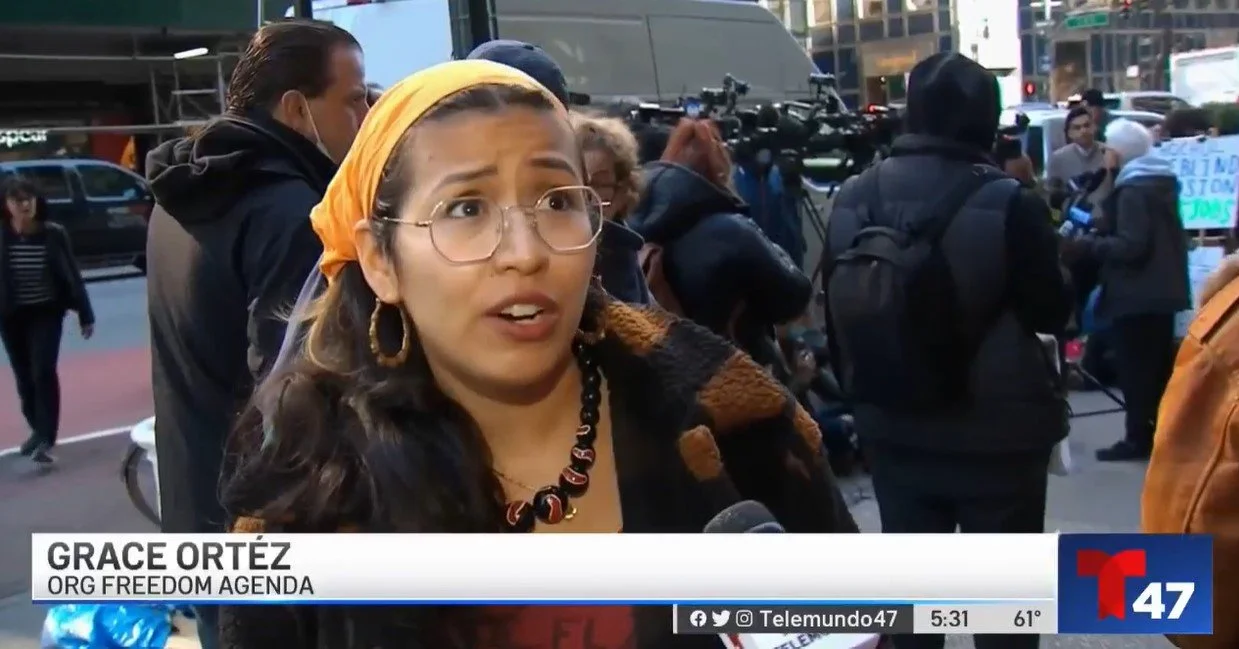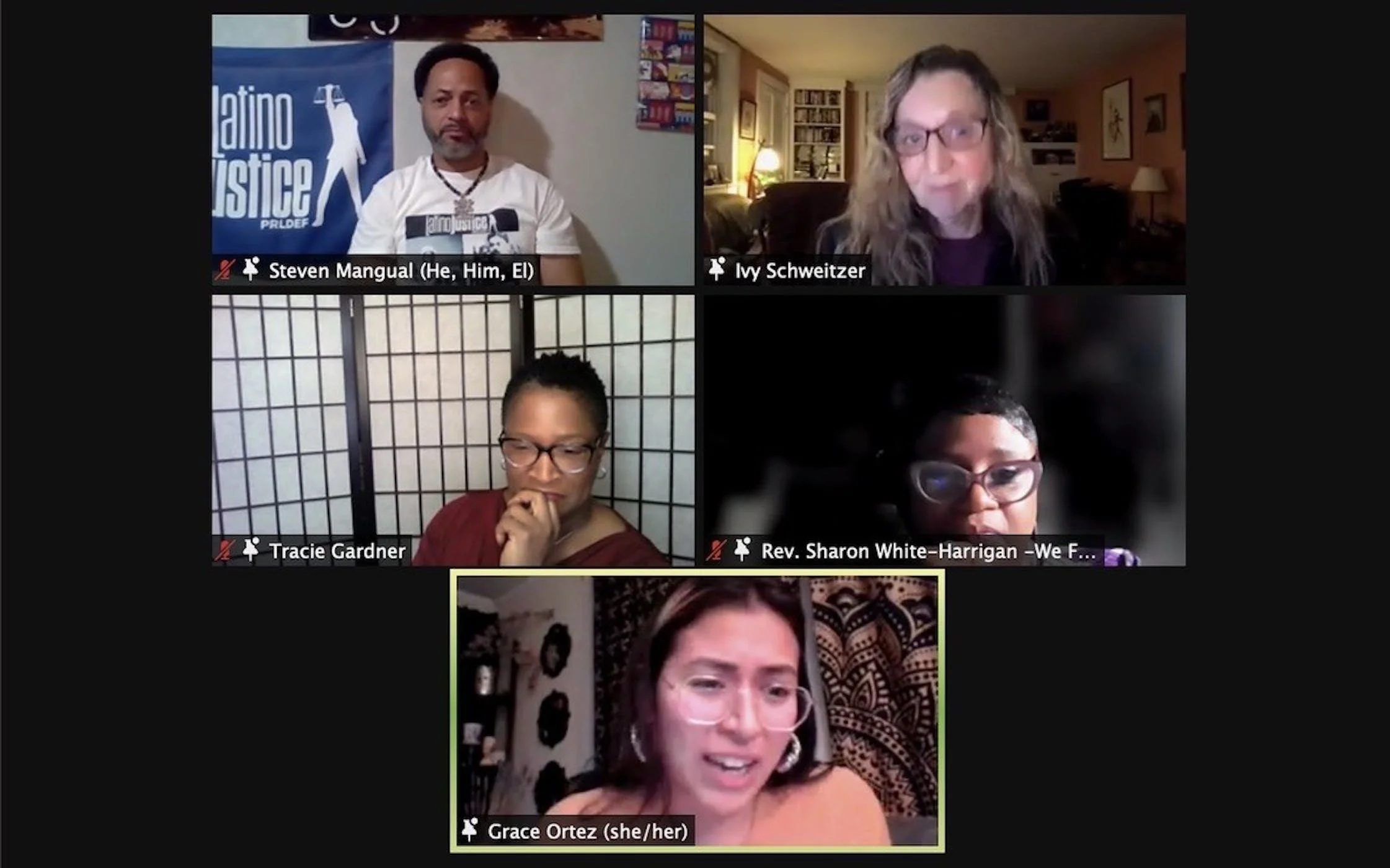CAMPAIGN LEADERS
GRACE ORTEZ
“As a violence survivor, I don't want society to use my experiences to justify cruelty. I want my experiences to stand for what would ultimately benefit survivors and would truly address and end violence - rather to simply reacting to it with more violence."
Grace's advocacy for decarceration and the human rights of incarcerated people grows out of her experience as a survivor of childhood domestic abuse. She is a close friend and community member of many who have experienced the trauma of incarceration, as well as a decarceral grassroots advocate-organizer, peer crisis support worker, reentry coordinator, healing circle facilitator, paralegal within the criminal legal system, and challenger of the punishment paradigm. She also organizes around expanded access to quality and non-coercive mental health treatment.
Q+A
1.) How are you connected to this movement?
Being a South Bronx native and having community rooted here gave me a very intimate experience with the resource deficits in our community - what that did to young people, and the lack of opportunities that they encountered, and how that fed violence really consumed families and communities in New York City. But my connection to this cause has more intimate roots as well.
I also am someone with a lot of friends who have been formerly incarcerated. So having that proximity to their experience, not just through their stories, but being alongside them through their experiences in reentry and recovery after the trauma of incarceration has been something that made it very visible to me. The trauma of incarceration leaves immensely profound and resonating damage that I don't think most people understand.
I also come into the space as a survivor of violence - and some pretty intense violence which started in early childhood with domestic violence and sexual violence and trauma - a lot of people may expect me as a result of my experiences like to have a punitive approach against my transgressors and against people who commit similar transgressions. But I know well that trauma fractures not just communities, but individuals. As a violence survivor, I don't want people to use my experiences to justify cruelty. I want my experiences to stand for what would ultimately benefit survivors and would truly address and end violence. And that isn't responding to violence with violence. An end to violence would mean an approach that centers healing instead of addressing violence only at the back end in the way that our society does now, which is completely wrong.
2.) Why should Rikers close?
Because, simply put, it is shattering black and brown communities throughout New York City. It is a place that is meant to supposedly give people a sense of protection or to create safety in our communities, but instead it exposes people who are already underserved and oppressed to levels of violence that make it very hard to come back into one's community unscathed. Rikers is a poison to every New Yorker, whether they know it or feel like they're impacted by it or not. Rikers creates a lot of vicarious trauma. True community care cannot ignore those that are underserved and those that may or may not have committed a transgression. I would argue that those who have been in that place deserve it the most.
Those who are hurting the most, those who hurt others, need a higher level of investment from us. Because it's worth examining an individual and their context to see why they might have ended up in a certain circumstance. And a place like Rikers simply erases the need for context or individual evaluation of circumstance, and treats everyone who enters its doors with such tremendous violence, that there is no sense of respect for the humanity left in that individual. And if that is how the state decides to approach people and mistakes, then that is how people who are exposed to that violence will be programmed to respond to their fellow humans as well.
I take a lot of offense to the punitive approach. Because again, it only addresses harm at the back end. And it assumes that violent crimes and murders, assaults, and rapes are all inevitable parts of our society. And that in turn sets up our community members to be harmed when we assume that there's nothing that can be done to prevent these transgressions, when we know that there are answers, and those answers don't involve inflicting more violence which ultimately comes back to further poison our communities.
3.) What is your vision for a more just and equitable post-Rikers New York City?
My vision of a more just and equitable New York City would be one in which we respond as quickly to the lack of resources in our community as we do when a transgression has occurred and our anger fuels us to respond to that with violence. And so what that means is listening to individual community needs and the nuances of these needs, and the families and the advocates and the people already immersed in their communities, doing hard work a lot of times for free, who have already come up with solutions that they would like to see happen that would address the needs of the people in their communities but simply haven't had the funding to do so.
So I would love to see community centered approaches, which really center and empower community leadership that is already holding our Black and brown communities in New York City now. I also envision a New York City in which we contextualize the decisions made and the circumstances of people that we incarcerate. And instead of leaning on the carceral state to address problems that we see, that we instead think about the trauma that led to somebody to the situation that they may have ended up in, or the mental health needs that have gone unaddressed. And we become this model for the world that New York City claims to be.
I also envision responses to harm that are community-centered and include restorative justice practices that are rooted in indigenous tradition that hold the intention of confronting transgressions, ensuring accountability, and working towards meaningful reconciliation. These are the tools and mechanisms that already exist and have existed for a very long time, that are known to contribute to healthier, stronger, more connected communities.
The people are not the problem. New Yorkers are not the problem. The poor are not the problem. Those with mental illness are not the problem. The problem is the way in which we live in community that is very broken, that is alienating, that it perpetuates trauma. These things can be addressed, and fixed.
A more just and equitable New York City for me is a more supportive, interconnected, less reactive and more mindful society which I believe we have all the resources to create. We just need to do so. We need to end the narrative that anyone is born inherently prone to violence. Trauma and harm beget violence, and everyone deserves a chance to heal from those wounds.








